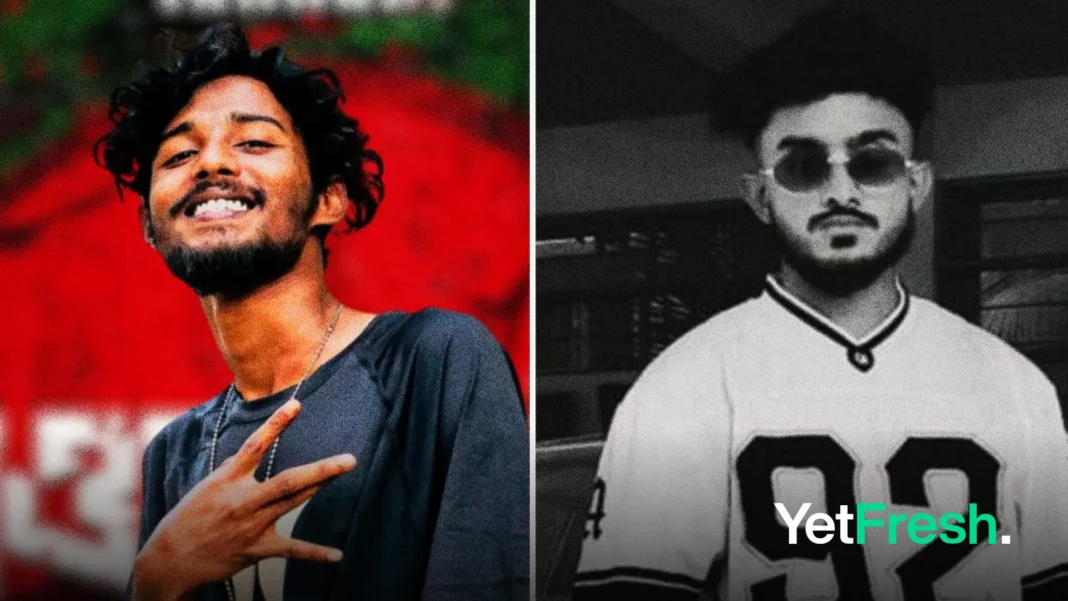Summary:
- Two Bangladeshi rappers, Hannan Hossain Shimul and Muhammad Shezan, who created protest songs during the July 2024 uprising, are now featured in Class 7 English textbooks, recognizing their contribution to social change.
- Hannan’s “Awaaz Utha” and Shezan’s “Kotha Ko” became revolutionary anthems during the 36-day protest, leading to Hannan’s 12-day imprisonment and eventual release after the government’s fall.
- The textbooks highlight how these young artists broke the tradition of silence among mainstream musicians, with their songs garnering massive viewership (600,000 and 1.6 million views respectively) during the protests.
- Their inclusion in the curriculum marks a significant shift in recognizing contemporary protest music in Bangladesh’s political history, following the 2024 uprising that resulted in over 1,500 deaths and 31,000 injuries.
Two young rappers whose protest songs became anthems during Bangladesh’s historic July Revolution of 2024 have now been immortalized in the nation’s school textbooks. Hannan Hossain Shimul and Muhammad Shezan are featured in new Class 7 English textbooks, marking a significant recognition of their role in the student-led uprising that ended Sheikh Hasina’s 16-year rule.
The textbooks highlight how these artists broke from the tradition of silence that characterized many mainstream musicians during the protests. Their songs – “Awaaz Utha” (Raise Your Voice) by Hannan and “Kotha Ko” (Speak Up) by Shezan – emerged as powerful voices of dissent during the 36-day revolution that culminated in August 2024.
Hannan’s “Awaaz Utha” garnered over 600,000 views on YouTube before his arrest on July 25, 2024, in Narayanganj. The song’s powerful lyrics challenged authority with lines like “Student voices rise, commands come from the hall.” Hannan spent 12 days in prison before being released following the government’s fall.
Shezan’s “Kotha Ko” achieved even greater reach with 1.6 million views. The song posed direct questions about freedom and justice with lyrics like “Where’s the difference between ’52 and ’24? Speak up! If the country claims freedom, where’s the freedom? Speak up!”
These rap songs sparked a musical revolution, inspiring numerous other artists to release protest tracks including “Chobbisher Guerrilla,” “Rokto,” and “Inquilab.” The movement demonstrated how hip-hop emerged as a powerful medium for youth expression during the uprising.
The new textbook section titled “New Generation” states: “Their rap songs became anthems of the July Uprising in 2024. The new generation is no longer afraid; they are brave and different.” This inclusion represents a significant shift in recognizing the role of contemporary protest music in Bangladesh’s political history.
The rappers’ inclusion in educational curriculum comes as Bangladesh continues to process the events of 2024, which saw over 1,500 deaths and 31,000 injuries during the protests that ultimately led to fundamental political change in the nation.
Source:




